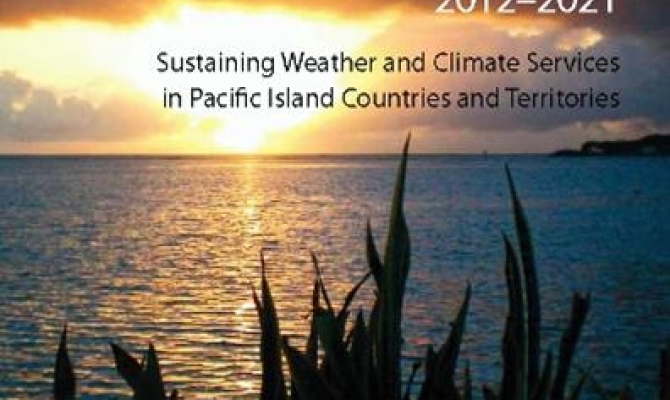
The Pacific Meteorology Council has adopted the Pacific Islands Meteorological Strategy (PIMS) to ensure that National Meteorological Services (NMS) have the capacity to fulfil their responsibilities over the next decade.
The PIMS 2012-2021 provides a guiding framework for the development and support of national and regional weather and climate (meteorological) services.
It seeks to promote development by building capacity within NMS and ensuring support is coordinated and delivered effectively in partnership with international agencies, regional agencies, donors and technical partners.
"The Pacific Islands Meteorological Strategy 2012–2015 represents a continued strategic effort on the part of  the Directors of National Meteorological Services (NMS) of all Pacific Island Countries and Territories (PICTs), to ensure that the services that we provide are sustained and ensured of the best quality possible," stated Mr Reginald White, PMC Chair and Director of the Republic of Marshall Islands National Weather Service.
the Directors of National Meteorological Services (NMS) of all Pacific Island Countries and Territories (PICTs), to ensure that the services that we provide are sustained and ensured of the best quality possible," stated Mr Reginald White, PMC Chair and Director of the Republic of Marshall Islands National Weather Service.
"Tropical cyclones and typhoons, drought and flash floods, storm surges, earthquakes and tsunami, are but some of these extreme events that concern our services. The past decade has seen some unprecedented disasters in the wake of these in the loss of life and livelihoods of Pacific people.
"As a Chair from an atoll country, the severe impacts of these and climate change provide more than enough motivation to ensure that our NMSs continue to grow in providing time critical and relevant data and information services to the public."
The PIMS will be officially launched at the Secretariat of the Pacific Regional Environment Programme Annual Meeting to be held in Noumea, 4 – 6 September 2012.
"I am confident that this Strategy and the commitment of support from the SPREP Secretariat and the Pacific Meteorological Desk Partnership will provide us with a sound roadmap for the next ten years to assure well-functioning professional NMS that are able to provide the best service to their country and people," stated Mr White.
The continued support of the development partners of the PMC such as the World Meteorological Organisation (WMO), the Secretariat of the Pacific Regional Environment Programme (SPREP), National Oceanic and Atmospheric Administration (NOAA) of the USA, Meteorological Service of New Zealand Ltd (MetService), National Institute of Water and Atmospheric Research (NIWA ) of New Zealand, Bureau of Meteorology (BOM) of Australia, Meteo France, Japanese International Cooperation Agency (JICA), Finland Ministry of Foreign Affairs and the Finnish Meteorological Institute, and bilateral and multilateral partners such as Australia, New Zealand, USA and the World Bank is crucial for the timely and successful implementation of the PIMS.
For more information, contact Dr Netatua Pelesikoti.